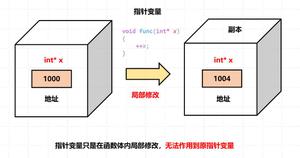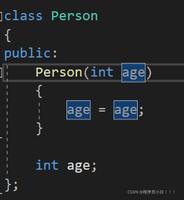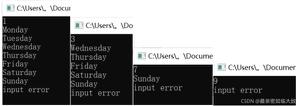何时在C / C ++中使用引用与指针
引用变量
引用变量是已经存在的变量的替代名称。不能更改它以引用另一个变量,并且应在声明时进行初始化。不能为NULL。运算符“&”用于声明引用变量。
以下是引用变量的语法。
datatype variable_name; // variable declarationdatatype& refer_var = variable_name; // reference variable
这里,
datatype-变量的数据类型,例如int,char,float等。
variable_name-这是用户给定的变量名。
Refer_var-引用变量的名称。
以下是引用变量的示例。
示例
#include <iostream>using namespace std;
int main() {
int a = 8;
int& b = a;
cout << "The variable a: " << a;
cout << "\nThe reference variable r: " << b;
return 0;
}
输出结果
The variable a: 8The reference variable r: 8
指针
基本上,指针是存储另一个变量地址的变量。当我们为变量分配内存时,指针指向变量的地址。
以下是指针的语法。
datatype *variable_name;
这里,
datatype-变量的数据类型,例如int,char,float等。
gvariable_name-这是用户给定的变量的名称。
以下是指针的示例。
示例
#include <stdio.h>int main () {
int a = 8;
int *ptr;
ptr = &a;
printf("Value of variable: %d\n", a);
printf("Address of variable: %d\n", ptr);
printf("Value pointer variable: %d\n",*ptr);
return 0;
}
输出结果
Value of variable: 8Address of variable: -201313340
Value pointer variable: 8
以上是 何时在C / C ++中使用引用与指针 的全部内容, 来源链接: utcz.com/z/322053.html









